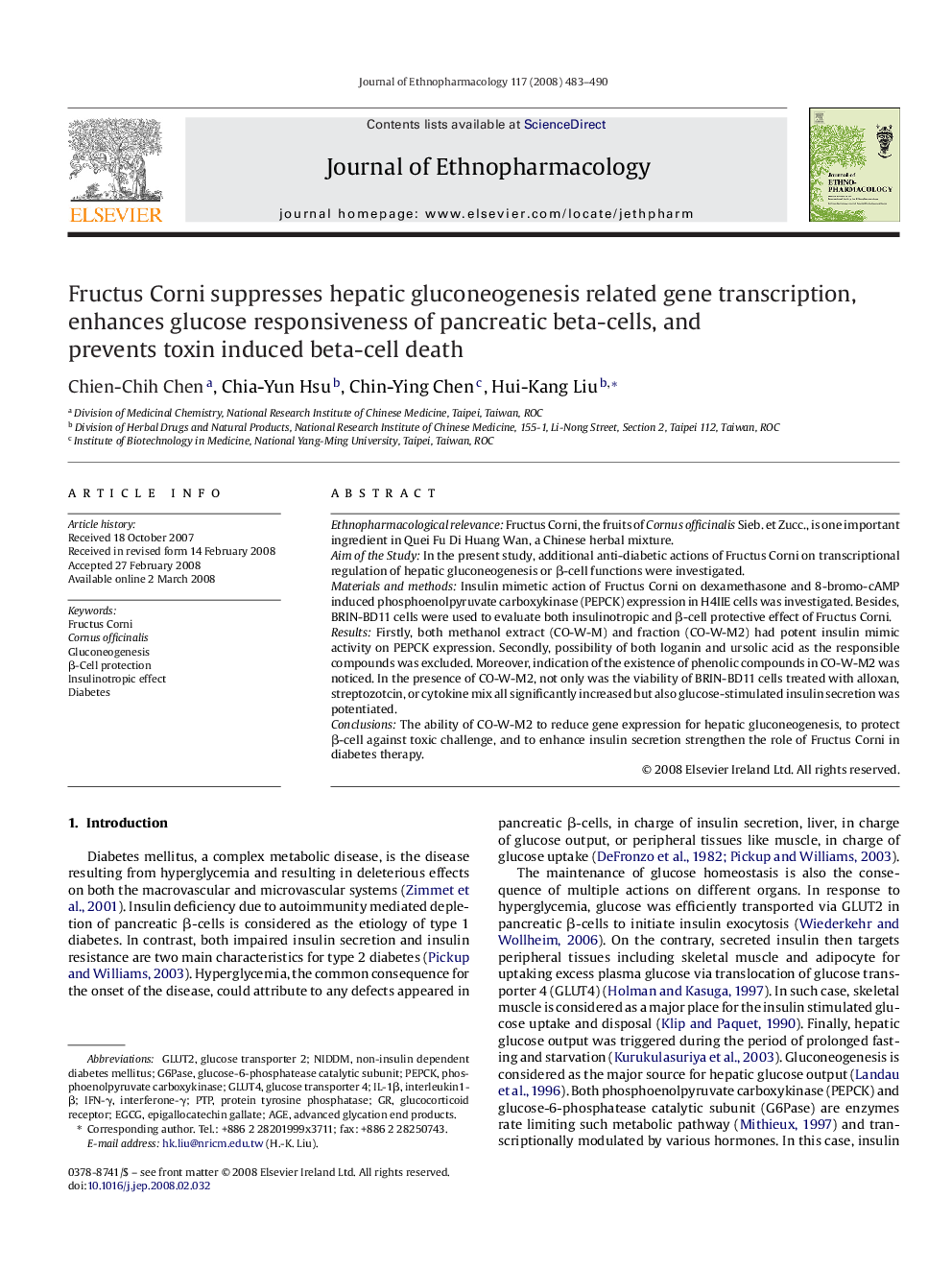| Article ID | Journal | Published Year | Pages | File Type |
|---|---|---|---|---|
| 2547046 | Journal of Ethnopharmacology | 2008 | 8 Pages |
Ethnopharmacological relevanceFructus Corni, the fruits of Cornus officinalis Sieb. et Zucc., is one important ingredient in Quei Fu Di Huang Wan, a Chinese herbal mixture.Aim of the StudyIn the present study, additional anti-diabetic actions of Fructus Corni on transcriptional regulation of hepatic gluconeogenesis or β-cell functions were investigated.Materials and methodsInsulin mimetic action of Fructus Corni on dexamethasone and 8-bromo-cAMP induced phosphoenolpyruvate carboxykinase (PEPCK) expression in H4IIE cells was investigated. Besides, BRIN-BD11 cells were used to evaluate both insulinotropic and β-cell protective effect of Fructus Corni.ResultsFirstly, both methanol extract (CO-W-M) and fraction (CO-W-M2) had potent insulin mimic activity on PEPCK expression. Secondly, possibility of both loganin and ursolic acid as the responsible compounds was excluded. Moreover, indication of the existence of phenolic compounds in CO-W-M2 was noticed. In the presence of CO-W-M2, not only was the viability of BRIN-BD11 cells treated with alloxan, streptozotcin, or cytokine mix all significantly increased but also glucose-stimulated insulin secretion was potentiated.ConclusionsThe ability of CO-W-M2 to reduce gene expression for hepatic gluconeogenesis, to protect β-cell against toxic challenge, and to enhance insulin secretion strengthen the role of Fructus Corni in diabetes therapy.
